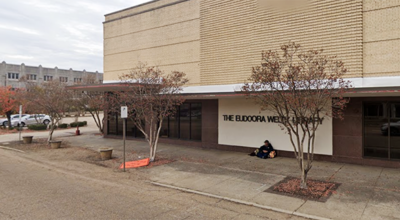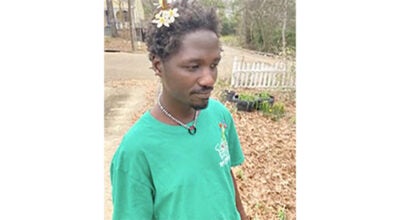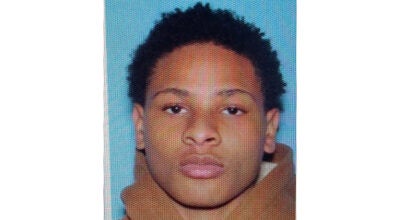Prosecutor to decide whether to pursue death penalty for seventh time
Published 8:59 am Saturday, June 22, 2019
A Mississippi prosecutor has tried and failed six times to send Curtis Flowers to the death chamber, with the latest trial conviction and death sentence overturned on Friday because of racial bias in jury selection. Now, that same prosecutor must decide whether to try Flowers a seventh time.
Doug Evans, who’s running unopposed this year for an eighth four-year term as district attorney for a seven-county swath of rural northern Mississippi, has shown no inclination to give up.
Flowers is accused of killing four people, execution-style, in a furniture store in 1996 in the town of Winona. Evans has tried Flowers six times, with four convictions overturned and two other cases ended in mistrials.
Evans’ efforts to keep black jurors off of Flowers’ case were at the center of Flowers’ appeal to the U.S. Supreme Court. In an opinion by Justice Brett Kavanaugh, the court ruled 7-2 on Friday that during more than 20 years, Evans pursued a “relentless, determined effort to rid the jury of black individuals,” with the goal of an all-white jury.
Evans didn’t return an email seeking comment Friday, and phones at his office in Grenada went unanswered. He told reporters for American Public Media’s “In the Dark” podcast that he hadn’t decided whether to try Flowers again, but remained confident of his guilt.
“There’s no question about (Flowers’) guilt. There never has been,” Evans told the podcast. “Courts are just like me and you. Everybody’s got opinions.”
He disputes the high court’s conclusion that he sought to exclude black jurors
“If they said that, that is not true,” Evans told the podcast.
The case began July 16, 1996, when four people were found shot to death inside Tardy Furniture in downtown Winona: 59-year-old owner Bertha Tardy and three employees — 45-year-old Carmen Rigby, 42-year-old Robert Golden and 16-year-old Derrick “Bobo” Stewart.
Months later, authorities arrested Flowers for the slayings. Prosecutors say he was a disgruntled former employee who sought revenge because Tardy fired him and withheld most of his pay to cover the cost of merchandise he damaged. Nearly $300 was missing after the killings.
Relatives of the victims are steadfast that Flowers is the killer.
“There is no justice,” Carmen Rigby’s widower, Benny Rigby, told the Clarion Ledger on Friday. “If he was white, he would have been executed by now.”
The defense, however, says it’s not just that jury selection was flawed — it’s that Flowers is innocent. They say witness statements and physical evidence against Flowers are too weak to convict him. A jailhouse informant who claimed Flowers had confessed to him recanted in recorded telephone conversations with “In the Dark.” Those reporters also turned up at least one possible other suspect whose existence was never disclosed to defense lawyers.
Flowers’ lawyers in a separate state court appeal were also raising questions about evidence, meaning the prosecution could face a stronger defense in a seventh trial.
Friday’s Supreme Court ruling could also enable the now-49-year-old Flowers to get out from behind bars for the first time since his arrest, even if there is another trial. Many Mississippi judges are reluctant to grant bail to defendants in cases where the death penalty is on the line. But a little-known state law says a judge must set bail in cases where there have been two mistrials on an indictment charging someone with a capital crime.
“There’s a strong argument that the statute requires bail to be set for Mr. Flowers,” said Tom Fortner, a prominent Mississippi defense lawyer who has cited that law in another case.
Defense attorneys could also seek to remove Evans and state court Judge Joseph Loper from the case. The defense asked Loper to recuse himself in the 2010 trial, claiming he was biased because he had ordered two jurors arrested for perjury at the end of the 2008 trial. Loper refused.
“The remedy might be the defense files a motion to force the DA to be recused because of misconduct,” Fortner said. “Then the court would have to appoint another prosecutor.”
During oral arguments , Supreme Court justices asked why Mississippi Attorney General Jim Hood hadn’t intervened. But Hood contends he can’t take over for Evans unless Evans invites him. Hood’s office has the power to prosecute some kinds of cases directly, such as white collar crime or child pornography.
But some case law suggests he can’t barge in on other types of cases without permission from the local district attorney.
“It will be up to the DA as to whether to re-evaluate or retry,” Hood said Friday in Biloxi. “I’m confident that the Supreme Court’s comments will be followed. I don’t have the authority to go take a case away from a DA.”
If Evans steps away or is recused, Hood said he would prefer that another district attorney be named to try the case, citing the small number of prosecutors in his office. Hood, a Democrat and former small-town district attorney who’s running for governor, said he hadn’t talked to Evans.
“I think Doug will follow what the U.S. Supreme Court’s directives are …,” Hood said. “I don’t want to come out like I’m saying Doug ought to recuse himself. Please make that clear.”






